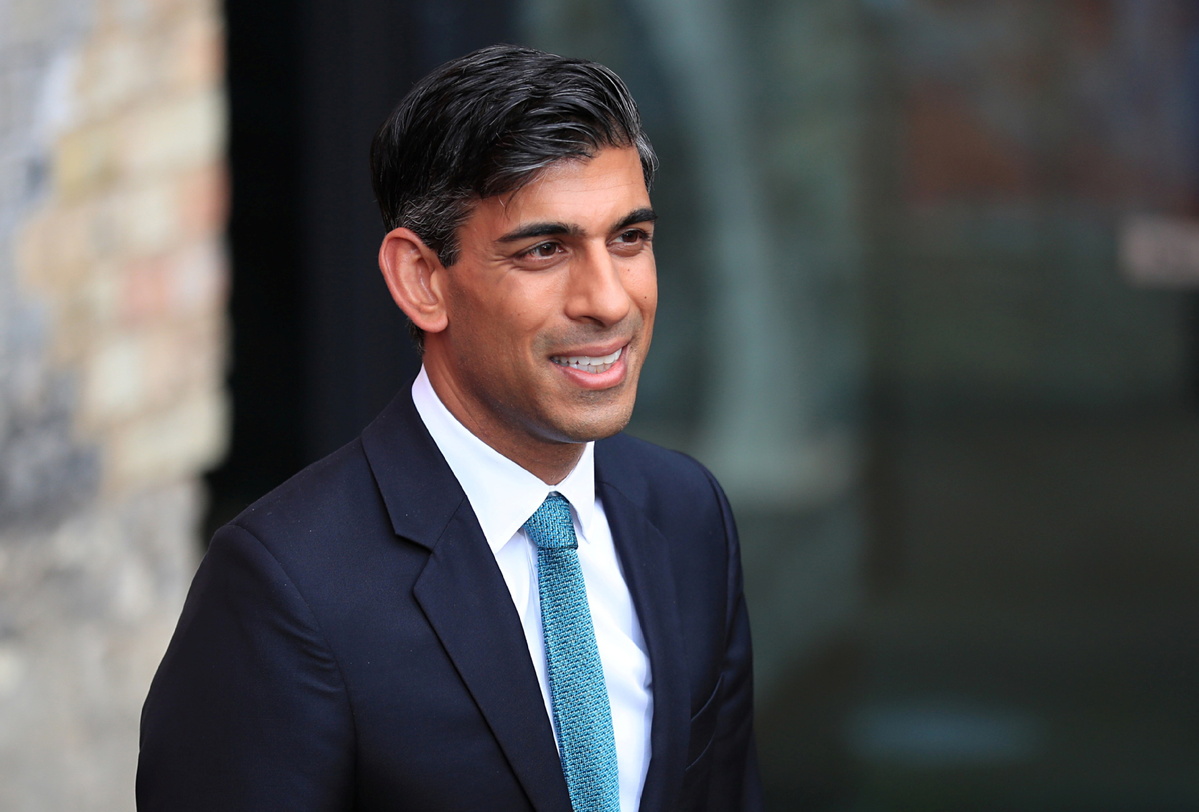Britain's finance minister signals end of big public-sector spending
By EARLE GALE in London | China Daily Global | Updated: 2021-09-15 09:46

The United Kingdom's finance minister, Chancellor of the Exchequer Rishi Sunak, has reportedly told colleagues who head other government departments he will pull in the belt in his budget on Oct 27.
According to the Financial Times, Sunak told Cabinet members they have until Monday to submit spending wish-lists, and that fanciful projects, such as Prime Minister Boris Johnson's dream of a 15-billion-pound ($20.8 billion) tunnel linking Northern Ireland and Scotland, will be dropped.
The crossing, which Johnson's former chief adviser Dominic Cummings once described as "the world's most stupid tunnel", was seen as a potential Johnson legacy project.
But the Financial Times said Sunak will instead set public-spending limits for the next three years, after months of massive spending because of the novel coronavirus pandemic.
The paper quoted an unnamed government official as saying Sunak wants to "put the public finances on a sustainable path in the medium term".
The FT said his spending review will chart the course of spending on services-including the nation's courts, local councils, schools, and public transport-until the general election scheduled for May 2024.
The FT noted that the government's announcement last week of a new tax to help fund spending on the National Health Service will have eased ministers' fears that the NHS would suck money from their budgets in the years to come.
The new tax, which should raise 12 billion pounds a year, will mean government departments should be able to rely on budgets growing by 4 percent more than inflation each year, something Sunak committed to in his March budget, and that he called "the largest real-terms increase in overall departmental spending for any parliament this century".
Sunak will have been bolstered by the Office for National Statistics revealing on Tuesday that job vacancies hit a record high in August.
The agency, which is known as the ONS, said there were more than 1 million vacancies in the three months to August for the first time since records began in 2001. Additionally, the number of people in employment had returned to pre-pandemic levels.
The news means Sunak will have more tax revenue available than he may have feared, the BBC reported.
The ONS said there were 241,000 additional people on payrolls in August, taking the UK total to 29.1 million.
The BBC added that, despite the high rate of employment, businesses were still clamoring for workers.
Jonathan Athow, the ONS's deputy statistician, told the BBC: "Early estimates from payroll data suggest that, in August, the total number of employees (was) around the same level as before the pandemic, though our surveys show well over a million are still on furlough."
The Guardian newspaper said, in spite of Sunak's reported desire to put public finances on a sustainable path, he could have the resources to spend an extra 140 billion pounds on "more expansive and interventionist policies".
Paul Johnson, the head of the Institute for Fiscal Studies, told the paper Sunak is also confident that the end next month of a 20-pound-a-week boost to universal credit payments, and the winding-up of the furlough program at the end of this month, will not significantly slow the economy.
























